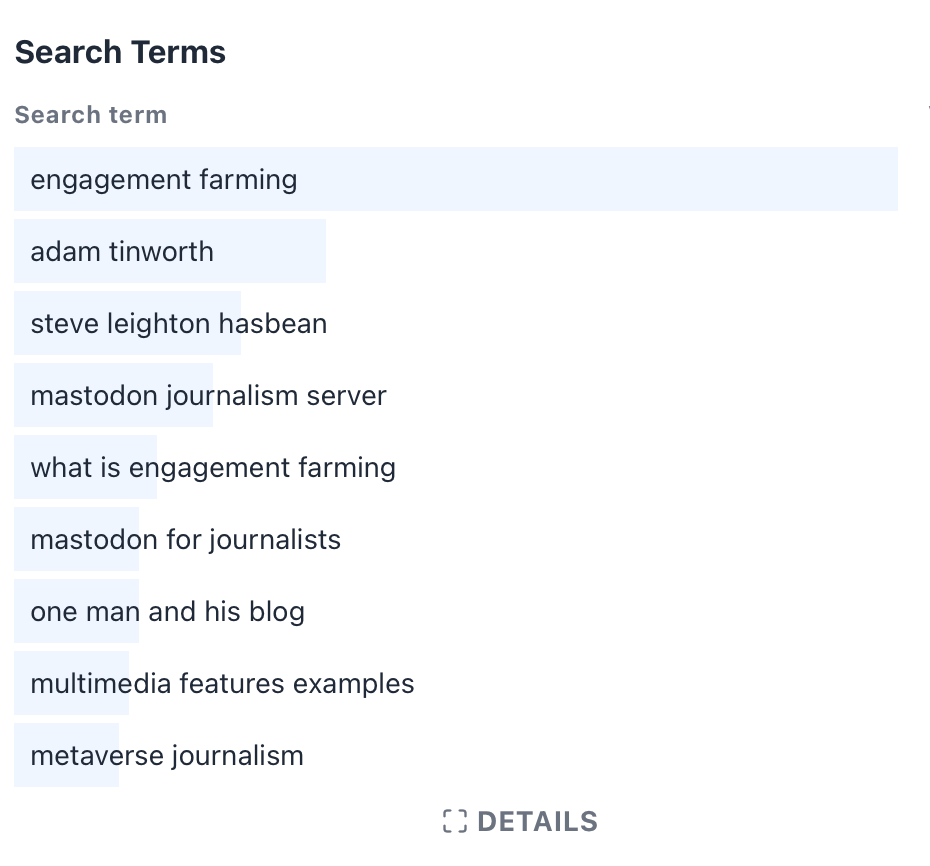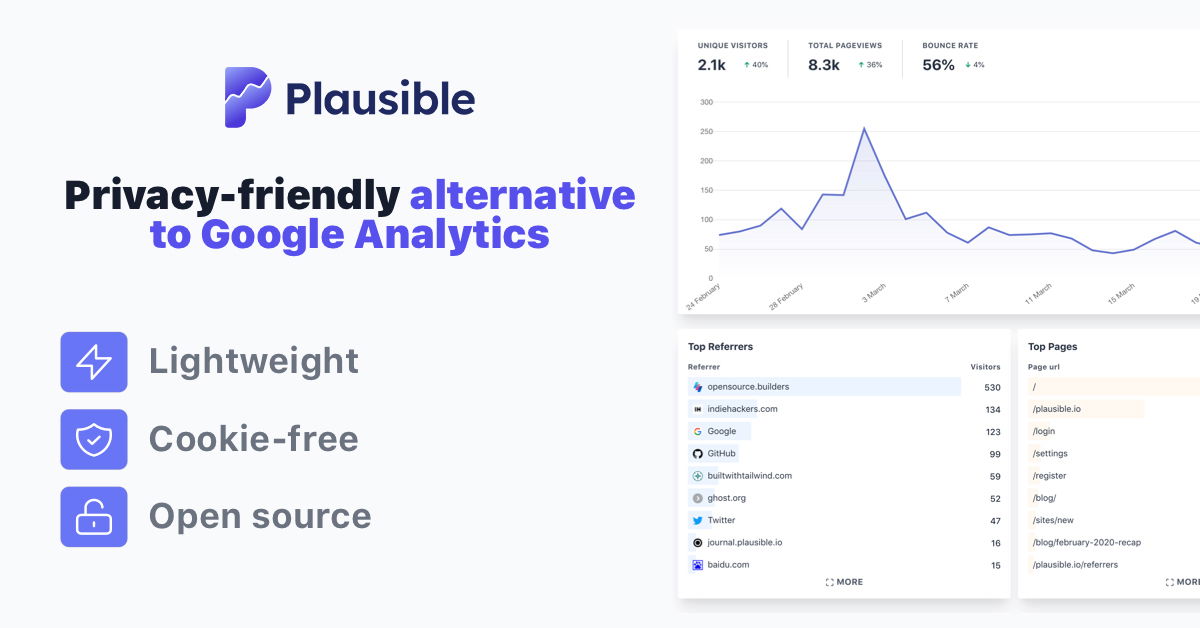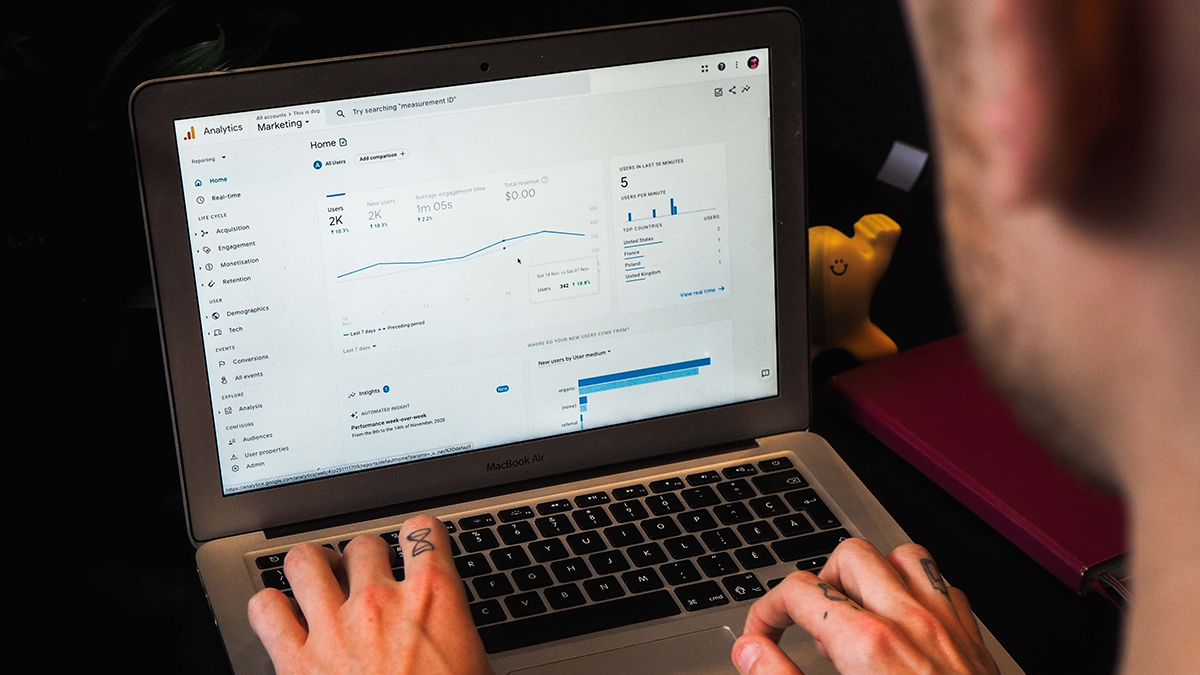
Social pay to play is coming
It appears that Elon Musk really is a social media thought leader, as Mark Zuckerberg is borrowing one of his monetisation ideas… Plus, a look at the post-Google Analytics world.
I don’t know, I take (most of) a week off, and what happens? Zuckerberg starts following in Musk’s footsteps, the head of YouTube steps down, and tensions in the NYT newsroom surface in an open letter. That'll teach me.
There’s probably more stuff, buried in my feeds and newsletters, that I’ve yet to get to. There’s certainly some interesting stuff on the SEO front (no, not the chat/AI stuff: good, traditional SEO work), which I might do a separate post on.
I might even do something on the power dynamics of open letters and social media criticism of publications by staff. But I might chicken out.
Meanwhile, folks…
Are you ready for Meta Blue?
Faceb…err…Meta following where Musk’s Twitter boldly led:
Good morning and new product announcement: this week we're starting to roll out Meta Verified -- a subscription service that lets you verify your account with a government ID, get a blue badge, get extra impersonation protection against accounts claiming to be you, and get direct access to customer support. This new feature is about increasing authenticity and security across our services. Meta Verified starts at $11.99 / month on web or $14.99 / month on iOS. We'll be rolling out in Australia and New Zealand this week and more countries soon.
The real value here won’t be the Blue Tick — pay-for-verification is already destroying its cachet on Twitter, and it will do much the same on Instagram and Facebook. For professional content creators without a direct news partnerships link, the direct access to customer support will almost certainly be worth it.
Making Twitter more expensive (or secure)
So, the latest delight from Twitter is that using SMS for two-factor authentication is becoming a paid feature of Twitter.
Bizarrely, this is good news. Why? SMS authentication is much less secure than app-based authentication. If you’re a journalist or other prominent creator using Twitter, you should turn on 2FA as soon as possible. You can use free apps like Google Authenticator — or modern versions of iOS and macOS have it built in.
A Plausible Google Analytics alternative
If you’re a heavy Google Analytics user, you’re probably not looking forwards to July. That’s the month when Google stops collecting data in Universal Analytics, and forces you over to Google Analytics 4, the new version. Oh, and your traffic history won’t move either. Your GA4 about will only have data from the moment you activate its tracking code.
So, if you’re being forced to switch anyway, is it time to consider an alternative? While working with attendees on my latest Essential Analytics course, I was reminded how much I like Plausible Analytics.
Why you should consider an alternative analytics platform
There are three reasons to really like Plausible as a Google Analytics replacement:
- You can import your historic traffic data from Google Analytics right now. I did this last night — and I now have traffic data going back to 2006 in my account.
- It’s a cookie-free, privacy protecting analytics system
- You can link Plausible with Google Search Console, and so get keyword search data in your analytics. Now look, yes, I think we should be moving away from keywords as the heart of our search approach. But it’s still useful information to have.

The downsides?
- It’s simpler than Google Analytics, so you can’t do some of the complex analysis you can do there — but how much of that do you really do?
- You have to pay — it’s not free. The price is not bad compared to the big analytics packages. For example, up to 1m views monthly is under £700 annually, while 500k is under £500. And for small creator, it starts at £90 per annum for up to 10k monthly page views.
If you’re not convinced by GA4 and its problems, Plausible is well worth a look:

Sticking with GA4? Here’s some advice

Quickies
- 📣 Instagram has launched broadcast channels — this is completing for the sort of community-building people do with Telegram or WhatsApp broadcast groups right now.
- 🫰🏼 Snapchat has reached 750m monthly active users. It’s still there. It’s still growing. Why have we all stopped talking about it?
- 👩🏽⚖️ IPSO is consulting on new reporting guidelines around sex, gender identity and court cases. I’m sure this will be perfectly straightforward and not at all controversial.
- 💰 At least one Substack mentioned in the Press Gazette piece on the top earners says the figures are very wrong.
Audience Job: The Big Issue
Does this sound like you?
Big Issue is looking for an Audience Engagement Editor to join our growing team. The new Audience Engagement Editor will play a key part in increasing the Big Issue’s engaged and unique online presence. We are looking for someone with flawless editorial skills that will take headlines from good to great, write tight and enticing email subject lines, understand how data informs editorial decisions and find innovative ways to reach new and existing audiences.
Apply here. Closing date is tomorrow — so move fast!
The Meta bait’n’switch
Yup, they’ve done it again:
instagram aggressively deprioritizing reels overnight after making every brand completely pivot their social strategy will be my villain story 🥲
— Ashni Mehta (@ashnimehta_) February 13, 2023
Chips off the old block
My daughters are clearly following in my footsteps…


Sign up for e-mail updates
Join the newsletter to receive the latest posts in your inbox.










